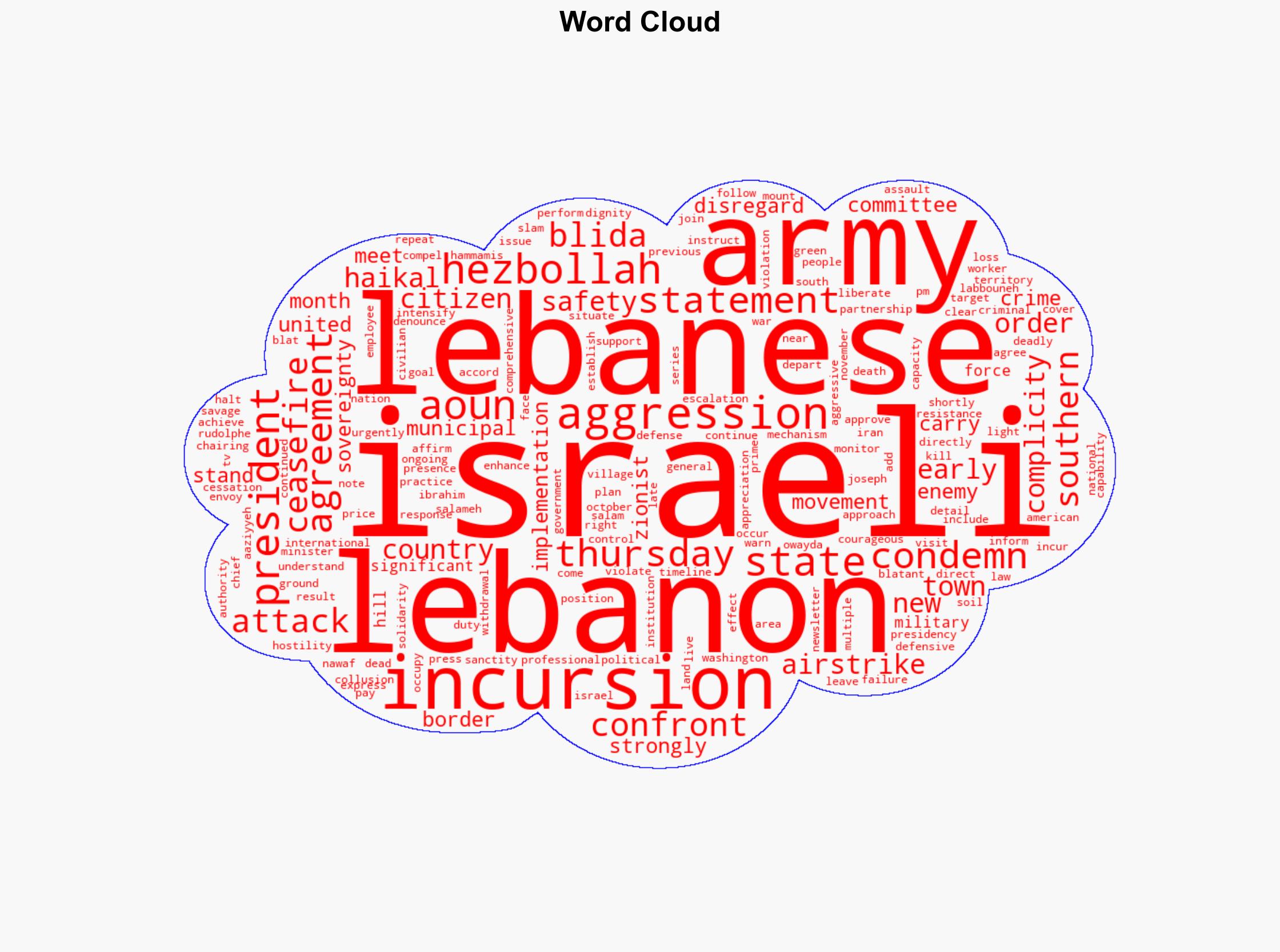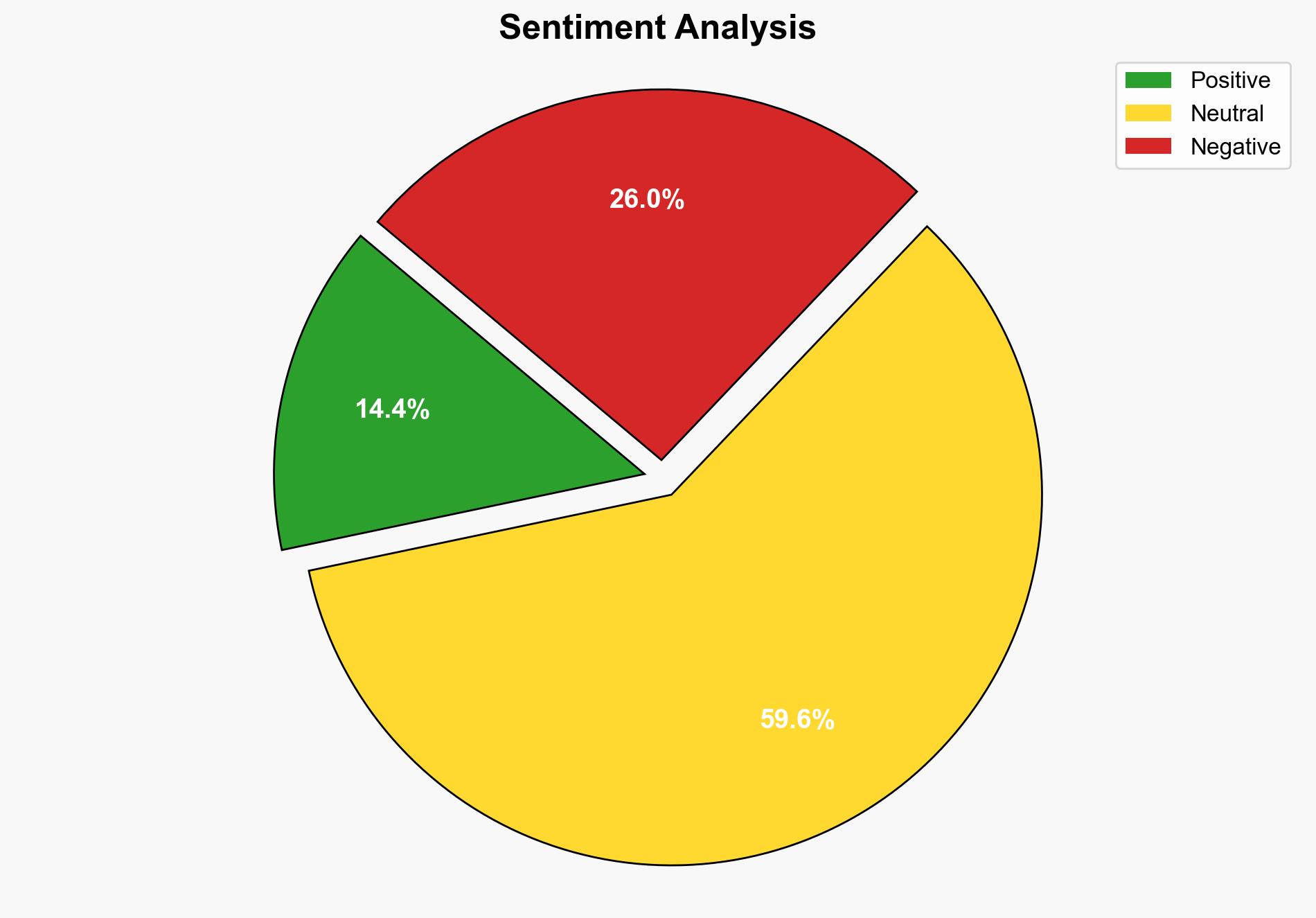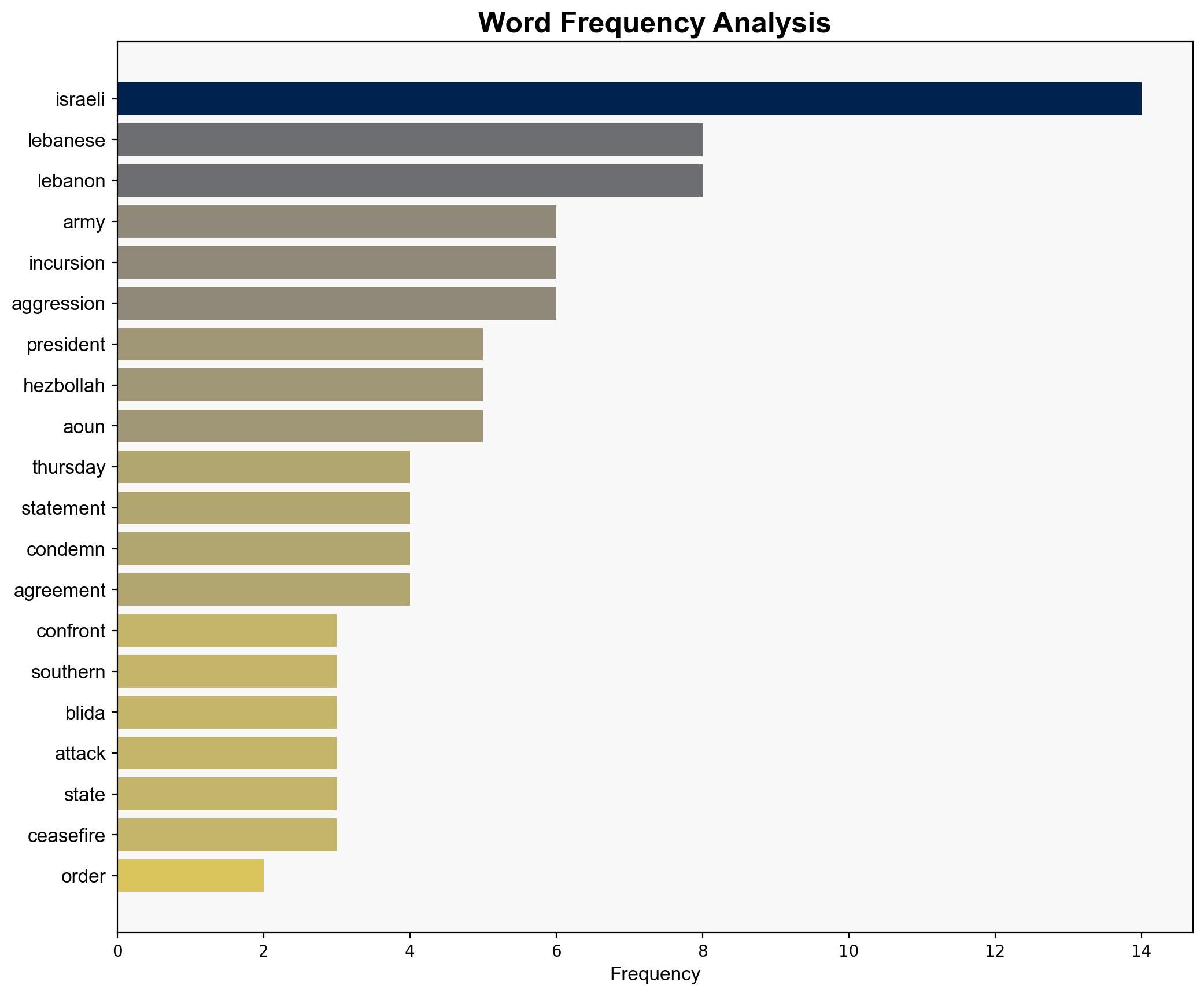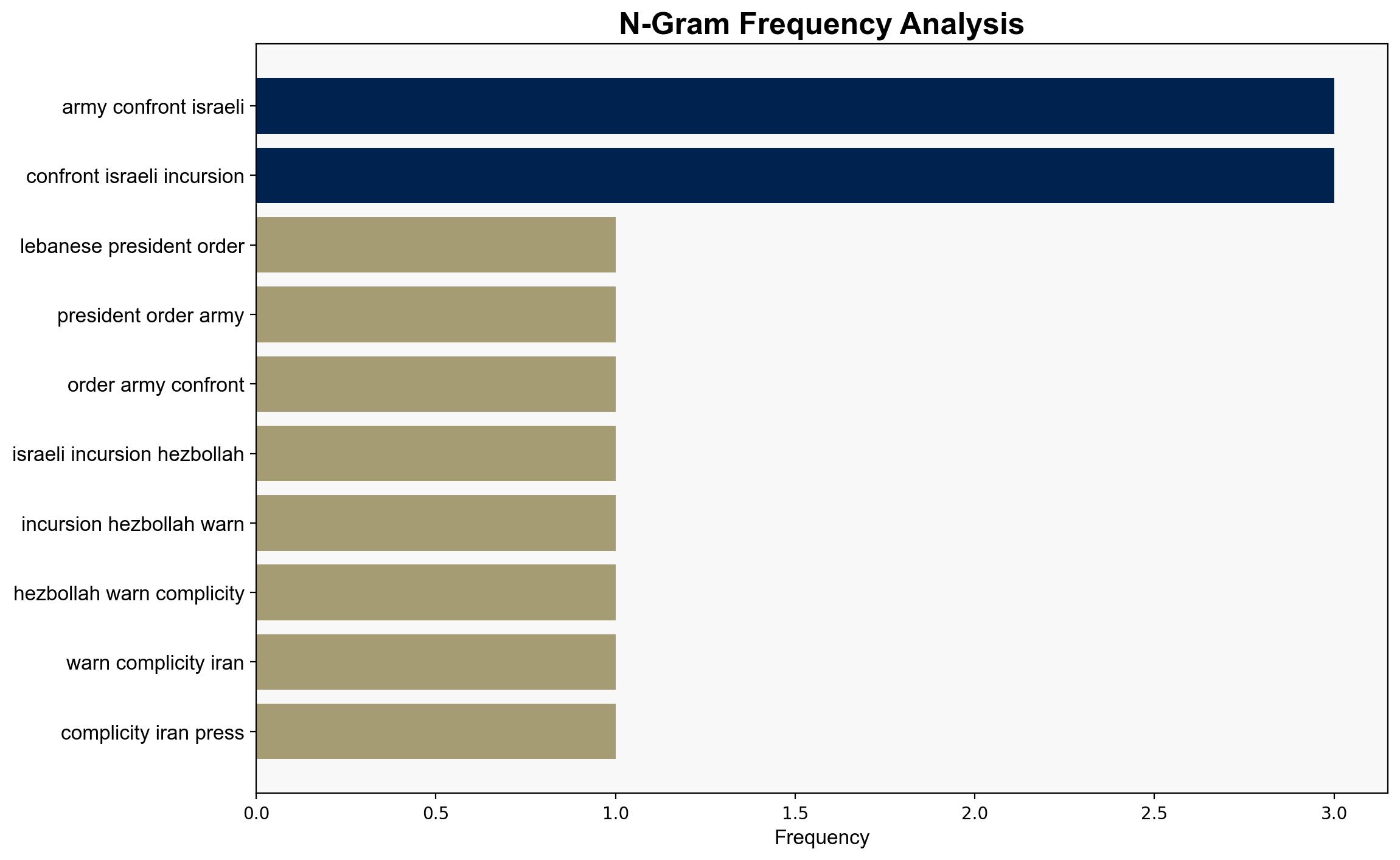Lebanese president orders army to ‘confront any Israeli incursions’ as Hezbollah warns of US complicity – Globalsecurity.org
Published on: 2025-11-01
Intelligence Report: Lebanese president orders army to ‘confront any Israeli incursions’ as Hezbollah warns of US complicity – Globalsecurity.org
1. BLUF (Bottom Line Up Front)
The situation in southern Lebanon is escalating, with the Lebanese president instructing the army to confront Israeli incursions, and Hezbollah accusing the US of complicity. The most supported hypothesis suggests a strategic posturing by Lebanon and Hezbollah to deter further Israeli aggression, with a moderate confidence level. Recommended actions include diplomatic engagement to de-escalate tensions and monitoring for further military developments.
2. Competing Hypotheses
1. **Hypothesis A**: The Lebanese president’s orders and Hezbollah’s statements are primarily defensive postures aimed at deterring further Israeli incursions and maintaining national sovereignty.
– **Supporting Evidence**: The emphasis on confronting incursions and protecting Lebanese territory suggests a defensive stance. Historical context of previous conflicts supports the need for deterrence.
2. **Hypothesis B**: The statements and actions are part of a coordinated strategy with Hezbollah to provoke a broader conflict, potentially involving regional actors like Iran.
– **Supporting Evidence**: Hezbollah’s strong rhetoric and accusations against the US could indicate a desire to escalate tensions, drawing in international attention and support.
Using Analysis of Competing Hypotheses (ACH), Hypothesis A is better supported due to the historical pattern of defensive posturing by Lebanon in response to Israeli actions.
3. Key Assumptions and Red Flags
– **Assumptions**: It is assumed that the Lebanese government and Hezbollah have aligned interests in deterring Israeli actions. It is also assumed that the US is not directly involved in the escalation.
– **Red Flags**: The lack of detailed information on the Israeli perspective and potential internal divisions within Lebanon could skew analysis. The timing of the statements following US envoy visits raises questions about external influences.
4. Implications and Strategic Risks
The escalation could lead to increased military engagements along the border, risking civilian casualties and infrastructure damage. Regionally, this tension might draw in Iran and complicate US diplomatic efforts. Economically, prolonged conflict could destabilize Lebanon further, impacting regional markets and humanitarian conditions.
5. Recommendations and Outlook
- Engage in diplomatic dialogues involving key stakeholders, including the US, to de-escalate tensions.
- Enhance intelligence monitoring of military movements and communications in the region.
- Scenario Projections:
- Best Case: Successful diplomatic intervention leads to a de-escalation and renewed ceasefire agreements.
- Worst Case: Escalation into a broader conflict involving regional powers, significantly destabilizing the region.
- Most Likely: Continued low-level skirmishes with periodic diplomatic interventions to manage tensions.
6. Key Individuals and Entities
– Joseph Aoun
– Rudolphe Haikal
– Ibrahim Salameh
– Nawaf Salam
7. Thematic Tags
national security threats, regional focus, geopolitical tensions, military strategy




